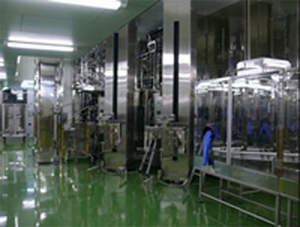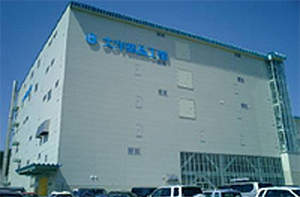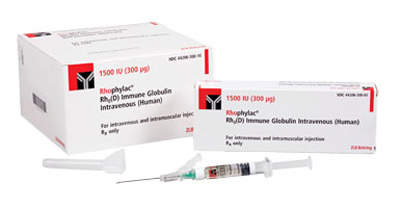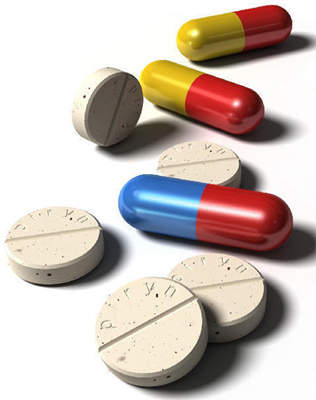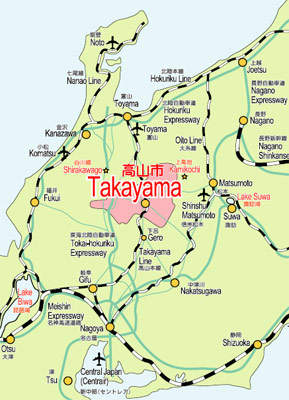Taiyo Pharmaceutical Industry (Taiyo Yakuhin) is one of the foremost contract pharmaceutical manufacturing and packaging companies in Japan. The company is known for manufacturing generic vitamins and antibiotics, but has recently gained ground by manufacturing refillable and pre-filled syringes (PFS) of medication for the parenterals market.
The company has produced generics and OEM products for the last 40 years. Like many other Japanese companies, it believes passionately in the principle of Kaizen (constant improvement) and value engineering, and this is the reason for its success.
Taiyo Yakuhin is located in Takayama City, Gifu, and its main business consists of two major enterprises: contract production for external parties, and the production of generics.
In May 2011, Taiyo Yakuhin signed a definitive agreement with Israel-based Teva Pharmaceuticals to sell 57% of its shareholding for $460m in cash. The deal will be finalised on approval by Taiyo Yakuhin’s shareholders by the third quarter of 2011.
Through this acquisition, Teva aims to capture Taiyo Yakuhin’s market share and increase sales to $1bn in the Japanese market by 2015. Teva also plans to buy the remaining shares of Taiyo.
Expansion and construction of the Taiyo Yakuhin facility
In early 2004, Taiyo Yakuhin announced it would increase its contract manufacturing operations in the wake of new Japanese Government legislation, which made it easier for firms to produce drugs for third parties on a contract basis. Demand for contract manufacturing services in Japan increased after the revision of the Pharmaceutical Affairs Law came into effect in April 2005.
Taiyo Yakuhin then announced that it intended to increase the contract manufacturing business from ¥2.3bn in 2002 to ¥7bn for the fiscal year ending 31 March 2005 as part of a broader plan to double group sales to ¥32.bn.
In order to achieve this, the firm needed to increase its capacity to make antibiotics, in particular, cephems and penems, at the facility in Takayama, and also needed to add a new production line for injectable drugs.
Following the corporate decision to expand, the next step was to choose a site for the expansion. The obvious choice for the company was the 110,000m² Takayama City campus (500 employees), where there was already a basic infrastructure for generics and contract manufacturing.
The basic design of the new facilities (Unit Factory Building) began in late 2002 and was completed by February 2005; construction work on the new buildings started in mid-2003 and was completed in July 2005. Plant outfitting began in May 2005 and was completed by March 2006. Validation started in July 2005 and was finished by August 2006.
Manufacturing began in December 2006. In early 2007 the new plant was awarded the Facility of the Year Award 2007 for equipment innovation. The first vaccine-filled syringes were manufactured in September 2007 at a rate of 900,000 per week, exclusively for the Japanese market.
The six-floor Unit Factory Building and the $40m pre-filled syringe manufacturing line took up a floor space of 11,744m². The construction budget amounted to ¥4.58bn and the equipment cost for the primary work was ¥3.29bn and ¥4.85bn for the secondary work.
Strategy and manufacturing
Taiyo Yakuhin (as part of the contract manufacturing facilities expansion) manufactured (filling and packaging) six types of PFS.
Since the company established the new facility as a successful project it also started producing PFS with high-speed type isolators as a new derivation for the important parenteral drug market. This was consistent with a low-cost strategy and in accordance with its mid to long-term management strategy.
The PFS line at its Unit Factory Building PFS manufacturing facility produces a total of six products, including four plastic syringe containers and two glass syringe containers. In addition to the in-house syringe project, two other manufacturing lines were successfully completed to produce PFS equipped with high-speed type isolators.
The facility is the first in the industry capable of producing and filling glass syringes in-house (1ml and 2.25ml). The main product for the glass syringes is influenza vaccine. The company has five lines held to the isolator.
Innovation and cost saving
Taiyo Yakuhin has introduced an innovative packaging by packing the syringes in Tyvec pillows and putting them through a hydrogen peroxide decontamination process while they are on the line. The company is dedicated to cost saving and collects cheaper electricity at night (off-peak), storing it in electrical storage batteries for use during the day.
The company is proud of the fact that there are no transportation costs to worry about from supplier factories for packaging material or for ready-made syringes. Glass tubing to produce syringe barrels is received in large cost-effective shipments from a German company. As everything is done in-house, the factory does not have such a great effect on the environment compared with receiving shipments of syringes and packaging materials every day.
Contractors for the Taiyo Yakuhin facility
Horiuchi Architectural Associates designed Taiyo Yakuhin’s production facilities (glass and plastic syringe lines). Production equipment design was carried out in-house by Taiyo’s team in conjunction with consultants. Construction management for the new Unit Factory Building was carried out by Kashima Construction.
Other contractors and consultants for the project included Daiichi Jitsugyou, Itochu Foodec, Clean Mechanical, KK Airex, Sakura Seiki, Winkler & Co, Groninger, Systech Ushijima, Murata Seiko, Hitachi Information & Control Solutions, SIG, IWK, KK Haginoya Machinery and SPAMI KK Kit.

